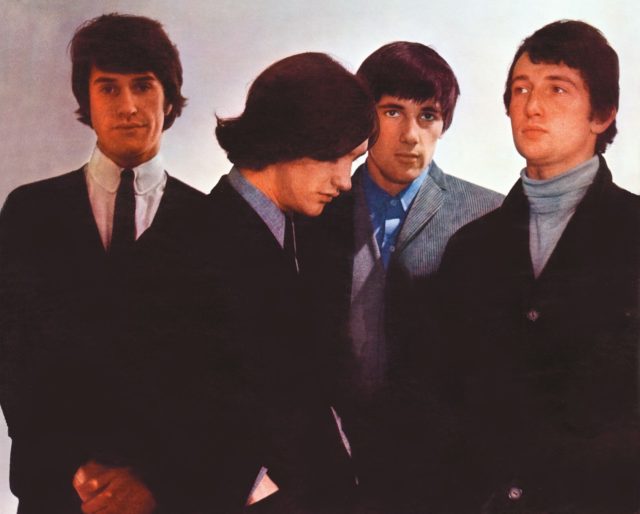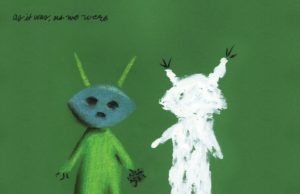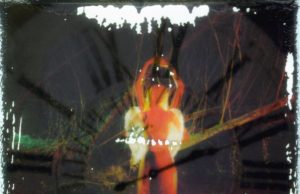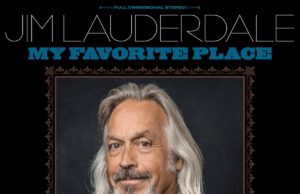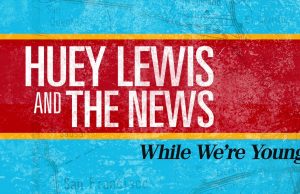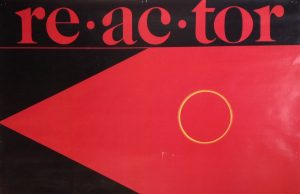 Any band that stays together for three decades will have their ups and downs, but it seems to me The Kinks had more than their share of drama.
Any band that stays together for three decades will have their ups and downs, but it seems to me The Kinks had more than their share of drama.
This London group were the black sheep of the British Invasion. They were formed by and around brothers Ray and Dave Davies, who became renowned for their legendary rivalry and fighting — perhaps even more so than Oasis’s Liam and Noel Gallagher, Phil and Don Everly or Ira and Charlie Louvin.
As a fan, I find them a difficult band to fully embrace, as there were basically four distinct phases to their career — and only two of them were truly great. They’re not as problematic as Jethro Tull, who have four albums I like out of 23. Or worse, Joe Jackson, who went three for 22 in my book. There are nine Kinks albums I own and love, out of a possible 24.
I love their beat music period, which produced their first three albums in 1964 and 1965. Sometimes they were proto-punk, other times introspective and stripped back. The next phase, the super-English pop period, produced two incredible albums in ’66 and ’67. It starts to go a bit off towards the end of the third phase, when they began to work that very-English perspective into concept albums from 1968 through 1971. The only slight dud of the five albums in this era was the soundtrack for the film Percy — even though it does contain one of their best songs: God’s Children.
And then it goes sideways when Ray took the songs into the realm of campy, theatrical, self-indulgent suites and concepts. There are still some great songs in this period — 1971 to 1975 — but they are fewer and farther between, for sure. I don’t own any of the five records made during this time. Next came the spotty back-to-form period from 1977 to 1984, which saw the band develop a power-pop approach. They certainly had the chops and the background for this, though they were about a decade older than their contemporaries. I own four of the six albums they made at this time, which is the period when they first entered my life — specifically with the song Destroyer, which I saw on TV.
The final period is just that, and suggests the band is a spent force. It basically continues the style of music they made in the early ’80s. I don’t own any of their final three albums from 1986 to 1993. I did, however, see Ray Davies live at Ottawa Bluesfest in 2008 and managed to get just a few feet away from him. It was one of the most memorable shows I’ve ever witnessed.
But it’s not just a wild musical ride — the personal odyssey of the Davies brothers and their bandmates was, at times, devastating and crazy.
It began when Ray and Dave were boys in a family of 10: Mom and dad, along with six older sisters. Ray turns 80 this month. Dave is three years younger. Let’s go through some of the more notable moments of Kinksian drama.
Death of sister Rene
The day before his 13th birthday, Ray’s eldest sister Rene gave him his first guitar, and then left for a night on the town. She would never return — suffering a fatal heart attack while dancing at the Lyceum Ballroom. She was 31 years old. The band’s 1982 hit Come Dancing was inspired by Ray’s memories of his sister.
Baby daddy
When Dave was 15, he got his girlfriend pregnant. The parents of both parties conspired to keep them apart and Dave didn’t manage to connect with his daughter until more than 15 years later.
Fried green Elpicos
The Kinks’ first hit was the all-time classic You Really Got Me. It was unlike anything heard on the radio at the time. Pure proto-punk and featuring influential, savage distortion on Dave’s guitar. Both brothers have shared different versions of how this sound was achieved. Dave’s version seems the most believable — that he was angry about a breakup with his girlfriend, and decided to take out his frustrations on his little green Elpico amp, which he didn’t like much anyway. At home, without his brother, Dave says he sliced the back of the speaker cone with a razor blade and poked a few holes in it. The resulting buzz of the tailored blown speaker is what makes You Really Got Me so special. Ray has said the broken speaker was the result of a fight between the two of them, and even gone so far as to say the slicing of the speaker was his idea. Dave has long suggested he should have received songwriting royalties for the guitar sound.
The best man is hammered
Ray got married to his first wife in 1964 and chose Dave to be his best man. When it came time for the younger Davies brother to rise and give the traditional speech, Dave staggered to the mic and declared he was too drunk. Sometime after, one of his sisters walked in on him having sex with the maid of honour. This set the stage for a sort-of nervous breakdown suffered by Ray who was overwhelmed by pressure to keep coming up with hits for the band, be its frontman, and be a family man. Meanwhile, Dave was galavanting around swinging London — drinking, shagging, doing drugs, getting named in the gossip columns and wearing all the latest fashions as the lead guitarist in one of the nation’s biggest bands. The two solitudes kept the brothers at each other’s throats. This resentment Ray was feeling appears to be the inspiration to Two Sisters from 1967’s Something Else:
“Sylvilla looked into her mirror
Percilla looked into the washing machine
And the drudgery of being wed
She was so jealous of her sister
And her liberty, and her smart young friends
She was so jealous of her sister.”
Stage fights
Although battles between the Davies brothers were common, there were also physical altercations between the other members. Dave and drummer Mick Avory got into it during a gig on May 19, 1965, right after opening with You Really Got Me. Mocking his performance, Dave suggested the drummer should try hitting the snare with his dick — that it might sound better. He then kicked over Avory’s drum set. The drummer responded by hurling a hi-hat at the guitarist like a Frisbee. It hit Davies in the head, knocking him out cold. He needed 16 stitches. With Ray freaking out, Avory ran away, fearing he’d killed Dave. The cops eventually caught up with Avory, who denied everything, despite the fact that it was all witnessed by the Capitol Theatre audience. Police considered charging Avory with attempted murder.
You really got me going
Promoter Betty Kaye was unable to pay The Kinks in cash for a show in Sacramento on June 26, 1965, due to slow ticket sales at the start of the U.S. tour which began June 18 in New York. The band were angry because they’d agreed on cash payments. So in retaliation, they decided to forgo their regular set and instead play one song: You Really Got Me — for 45 minutes straight.
Banned in America
The hi-hat hurling incident, coupled with another dustup while filming their appearance on American Bandstand on June 28, 1965 led to the band being banned from performing in the U.S. until 1969. Someone who claimed to work for the ABC show told the band they were late and then began hurling anti-British sentiments at them, which led to fisticuffs. The American Federation of Musicians refused to grant The Kinks work permits afterward. Their last show on American soil before the ban was in Seattle on July 10, 1965. They didn’t play in America again until Oct. 17 & 18, 1969, when they played New York’s Fillmore East. This absence from America during their most critically acclaimed period had an incalculable effect on their career. It likely also has a lot to do with why they began writing such distinctly British material. But, as The Kinks themselves used to proclaim — the band that fights together, stays together. Ray personally travelled to Los Angeles in April ’69 to negotiate an end to the ban.
Nervous breakdown
Ray suffered a nervous and physical breakdown just before the release of 1965’s The Kink Kontroversy album — a title referencing the band being banned in America. This, coupled with the pressures of coming up with hits and exhaustion from touring led to Ray’s breakdown. The songs he wrote during several months of recuperation marked a change in direction for the band and would lay the groundwork for 1966’s Face To Face, which was loaded with baroque-style pop and the all-time greats Sunny Afternoon and Dandy (which Ray wrote about his stylish, ladykiller brother). It marked the beginning of the band’s golden era.
For Pete’s sake
Bassist Pete Quaife was in a car crash in June 1966. Even though the injury was to his leg, John Dalton was brought in as his replacement. This raised eyebrows within the band, and made more sense when Quaife announced he was quitting. Dalton was hired as a full-fledged member — his first appearance on a Kinks album being Little Miss Queen of Darkness on Face To Face. Quaife changed his mind and rejoined in November ’66 in time to record Something Else, which came out in the summer of 1967. Dalton went back to his old job delivering coal. At the dawn of 1969, Quaife announced he was quitting for good. He appears on a handful of songs recorded during sessions for Arthur (Or The Decline and Fall of the British Empire), which came out in October ’66. Those tracks are featured on expanded reissues of the album, but not on the original LP. For the album, Dalton returned and remained through 1977’s Sleepwalker. Quaife played in the U.K. for a while before emigrating to Canada — specifically Belleville, Ont. where he worked as a graphic designer. I remember seeing his famous (to me) Rickenbacker bass hanging in the window of his wife’s Front Street shop window. When I went in to ask about it — they told me it belonged to Pete Quaife. “Of The Kinks?” I asked. They confirmed, but didn’t explain how or why. Luckily, when I shared photos of my discovery with my photojournalism instructor at Loyalist College, he filled me in on the backstory. Quaife died in June 2010, and Ray approached Dave about doing a reunion at a memorial tribute for their old bandmate. Dave turned him down and Ray cancelled plans for the memorial.
An end to touring
The band decided to focus on studio efforts in 1967 and largely retired from touring in 1968. They went from playing nearly 300 shows in 1964, nearly 250 in 1965 down to a little more than 150 in 1966, thanks to the U.S. ban. By 1967 and 1968 they were only doing around 70 shows per year. They played fewere than 60 in 1969 — after the U.S. ban ended.
Divorce and a suicide attempt
Ray’s wife had left him, taking their two daughters. To make matters worse, The Kinks’ albums were flopping. On July 15, 1973, they were playing White City Stadium in London. Ray had been acting strangely all day. Unbeknownst to his bandmates, he had taken a lot of pills. The fourth song was Lola. After that, Ray told the crowd, “I’m fucking sick of the whole thing.” A few songs later, he kissed Dave on the cheek and once again addressed the crowd — “I just want to say goodbye and thank you for all you’ve done.” The 16-song setlist of mostly ’60s-era hits continued until the end, when Ray announced into the switched-off mic that this was the band’s last show. An empty bottle of antidepressants was found on him, so the road manager rushed Ray to hospital, where he collapsed and had his stomach pumped. Dalton has said he felt Ray returned to work too quickly after the incident and never really seemed the same afterwards. Ray was diagnosed with bipolar disorder.
Name change
Shortly after Ray’s divorce from his first wife Rasa, he had his name legally changed by deed poll to Raymond Douglas. This gave him some anonymity — especially when he remarried in 1974. A deed poll can be done in the U.K. by one’s self, simply by writing out a specifically worded statement and having it signed by two witnesses. Raymond Douglas changed his name back to Raymond Douglas Davies four or five years later.
Switching labels
In the beginning, the band unsuccessfully auditioned for a half-dozen labels before being signed by Pye Records. Their last album for Pye was Percy in 1971 — ahead of a five-album deal and a $1 million advance with RCA. The first RCA album was Muswell Hillbillies, often considered the group’s last great record. A series of unpopular concept albums followed, before the contract ended and the band signed with the fledgling Arista Records in 1976. They were one of Clive Davis‘s first signings, along with The Grateful Dead, Patti Smith, Eric Carmen, Air Supply, Lou Reed, Alan Parsons and Dionne Warwick.
Second wave of popularity and another divorce
The band’s return to non-concept material with Sleepwalker (1977) and Misfits (1978), which helped their popularity. So did successful mainstream covers of their material by The Pretenders and Van Halen. The tougher pop-rock sound of the next three albums thrust the band back into the charts and arenas. They went from playing 26 shows in 1976 to 100 in 1979. Ray’s second marriage to Yvonne Gunner in 1974 ended amidst the hectic schedule and his new relationship with Chrissie Hynde, whom he began dating in 1980. Ray and Gunner divorced in 1981. The Pretenders’ song The Adultress was inspired by their affair. He and Hynde nearly got married, but were turned away from the registry office. They had a rocky relationship, but did have a child together — another daughter, Natalie Rae Hynde, born in 1983, but they broke up not long afterwards. Ray married a third time to Irish ballet dancer Patricia Crosbie in 1985. She eventually worked as a choreographer for Kinks tours. The pair had met in a London gym in 1984. This was Ray’s longest marriage — 13 years. It produced his fourth daughter Eva in December 1996. Crosbie says the marriage didn’t end because of any drama — they just fell out of love.
Cake stomping
The band’s final performance was June 15, 1996 in Oslo, Norway. It was one of just two shows that year. Before that, their last show was a three-song set in Cleveland to mark the opening of the Rock And Roll Hall of Fame on Sept. 2, 1995. In February 1997, Ray offered to bankroll a party for Dave’s 50th birthday. It was held at the hall where the band first played — across the street from their childhood home. Just as Dave was about to cut the cake, Ray jumped up on the table to give a speech — the focus of which, Dave says, was Ray’s own brilliance. The Kinks frontman then ended his speech by stomping on his brother’s birthday cake.
Ray gets shot
In January 2004, Ray and a female companion were walking back from dinner in New Orleans’ French Quarter when they were approached by a mugger armed with a gun. She handed over her purse. Ray decided to chase after the robber, who turned and shot Davies in the leg at point-blank range.
Dave has a stroke
In June of the same year, Dave suffered a stroke as he walked out of an elevator at the BBC broadcast headquarters, where he had been promoting his album Bug. He was in hospital for two months but within two years he had recovered enough to walk, talk and play guitar.
Ray joins Dave onstage
The brothers reunited on stage for the first time in 20 years when Ray came out as a guest to perform You Really Got Me on Dec. 18, 2015 at Islington Assembly Hall in London. It was the last song of a Dave solo show, which featured a setlist loaded with songs by Ray. Addressing the crowd, Ray made sure to insult his brother’s band. This is the sort of thing Ray would routinely do to Dave during introductions at old Kinks shows — often introducing him as Dave “Death of a Clown” Davies, making light of his one hit song as a member of the band.
Reunion talks
Word started spreading in June 2018 that Ray and Dave were working on a new album with Avory. This was confirmed again the following summer. In December 2020, Ray indicated no progress had been made and little had been accomplished. In January 2021, Dave told a reporter there had been some discussion of a reunion — and that a load of new material exists. But in March 2023, Avory indicated a reunion seems impossible for both health reasons (in addition to Dave’s stroke, Ray has suffered with blood clots in his lungs), and the brothers couldn’t agree on an approach or a lineup. The most recent story I could find comes from November 2023, when Dave indicated he and his brother “spoke the other day and we’re meeting up in a couple of weeks. I want us to talk about doing something based on our lives.”
How could that not be entertaining?
• • •
Area Resident is an Ottawa-based journalist, recording artist, music collector and re-seller. Hear (and buy) his music on Bandcamp, email him HERE, follow him on Instagram and check him out on Discogs.














